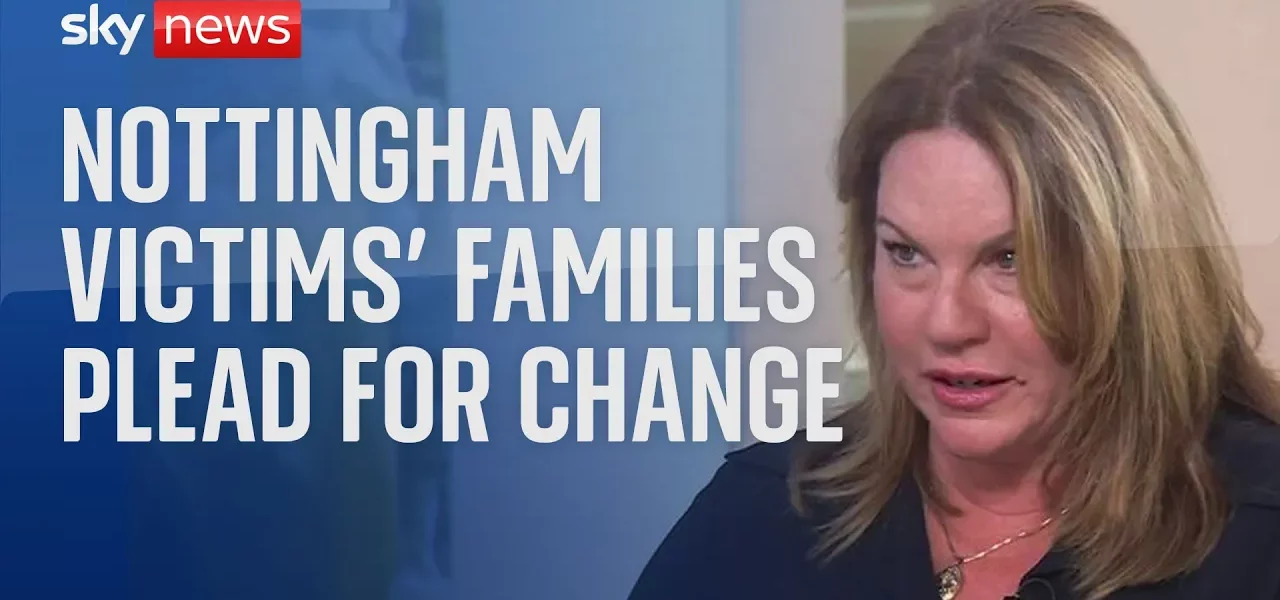Families of Nottingham Attack Victims Seek Justice and Change

In the aftermath of a tragic event that claimed the lives of three individuals, families are rallying for justice and reform in mental health laws. This article delves into the ongoing struggle of these families, their calls for a public inquiry, and the legal support they are receiving to navigate this complex situation.
Introduction
The Nottingham attack, which resulted in the heartbreaking loss of Barnaby Weber, Grace Om, and Ian Coats, has left families grappling with grief and a desperate need for justice. As the one-year anniversary of this tragic event has passed, the families are not only mourning their loved ones but are also calling for significant changes in the law and a public inquiry into the failures that allowed the perpetrator, Valdo Cakan, to remain in the community. This article explores the details surrounding the attack, the legal avenues being pursued by the families, and the broader implications for mental health and criminal justice reform.
Background of the Nottingham Attack
The Tragic Events
On a fateful day in Nottingham, Valdo Cakan, a diagnosed paranoid schizophrenic, committed acts of violence that claimed the lives of three innocent individuals. The attack was not only shocking due to its brutality but also because of the apparent failures in the mental health system that allowed Cakan to be in the community despite his condition.
Impact on Families
The families of the victims have expressed profound grief and frustration. Emma Weber, the mother of Barnaby, shared that the one-year anniversary was particularly challenging, filled with memories and the painful reality of their loss. The day brought families together, but the emotional toll of the past year has been immense.
Legal Actions and Advocacy
Seeking Justice and Change
In response to the attack, the families have been vocal about their demands for justice. They are working closely with legal representatives, including Neil Hudgel, to explore potential legal reforms that could prevent similar tragedies in the future.
- Public inquiry into the multi-agency failings
- Changes in laws governing the treatment of mentally ill offenders
- Greater accountability for mental health services
Role of Legal Representation
Families are now receiving legal support from experienced lawyers who have previously represented victims of the post office scandal. This support is crucial as they navigate the complexities of the legal system and advocate for necessary changes.
Mental Health and Criminal Justice Reform
The Need for Legislative Change
Emma Weber emphasized that the current legal framework inadequately addresses the nuances of cases involving mentally ill offenders. She argued that changes are needed to ensure that individuals like Cakan, who have demonstrated a clear understanding of their actions, face appropriate legal consequences.
- Introduction of a new category of murder that accounts for mental illness
- Stricter evaluation processes for mentally ill offenders
- Enhanced training for law enforcement on handling such cases
Challenges Ahead
While the families are determined to pursue justice, they acknowledge the challenges associated with changing established laws. Neil Hudgel noted that the legal process is often slow and fraught with obstacles, yet the determination of the families serves as a motivating force for their advocacy.
Public Response and Community Support
Rallying Community Support
The community has shown strong support for the families, as many are united in their desire for justice and reform. Public awareness campaigns and community meetings have been organized to draw attention to the issue and advocate for change.
The Role of Media
Media coverage has played a significant role in amplifying the voices of the victims’ families. Interviews, articles, and reports have brought this issue to the forefront, encouraging public discourse on the treatment of mentally ill offenders and the responsibilities of mental health services.
Conclusion
The families of the Nottingham attack victims continue to fight for justice, seeking not only accountability for their losses but also fundamental changes in the law to prevent future tragedies. Their journey is a testament to resilience and the power of advocacy in the face of overwhelming sorrow. As they move forward, community support and legal reform will be crucial in ensuring that the memories of Barnaby, Grace, and Ian are honored through meaningful change. We encourage readers to stay informed and support initiatives aimed at reforming our mental health and criminal justice systems.
“`




